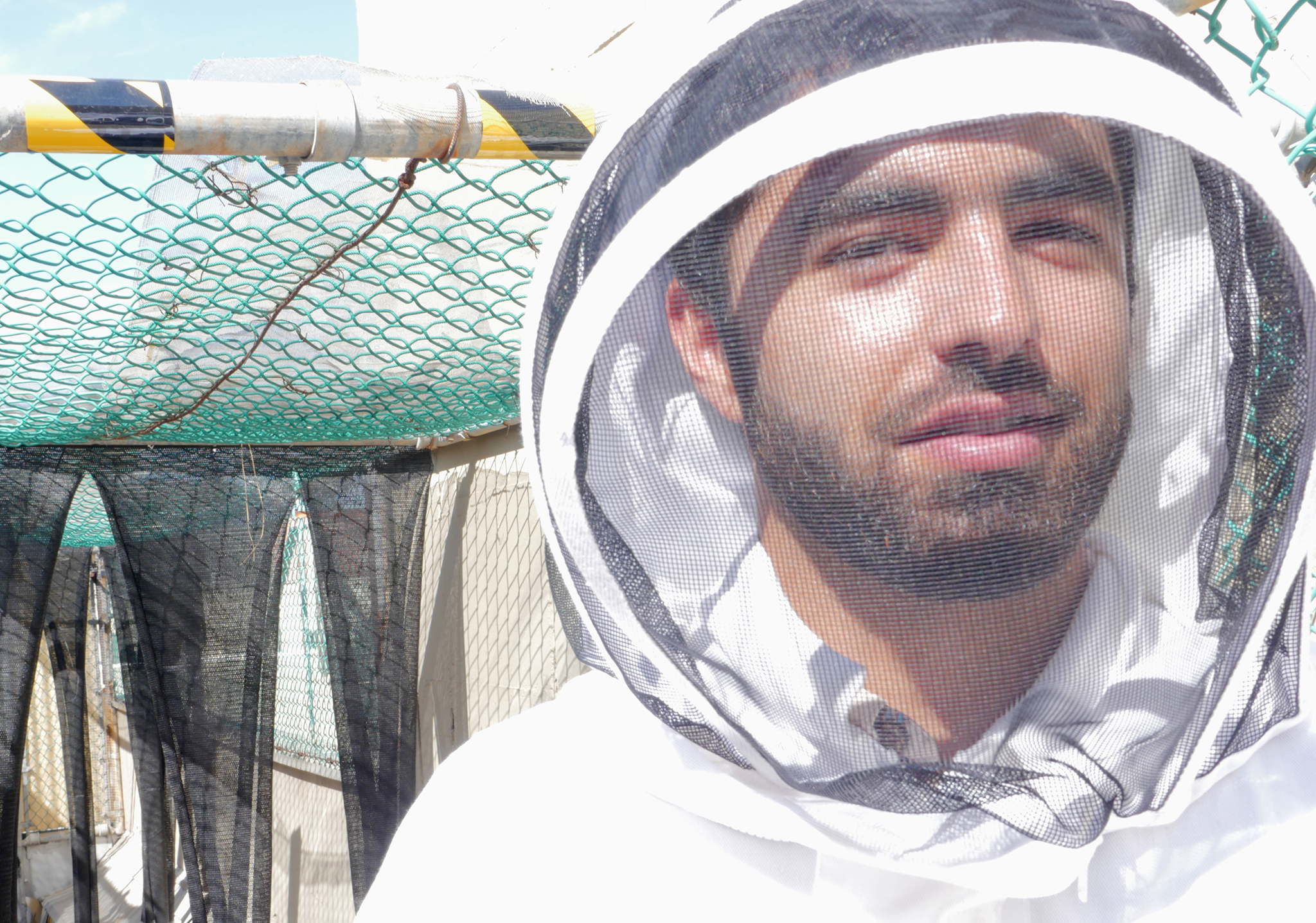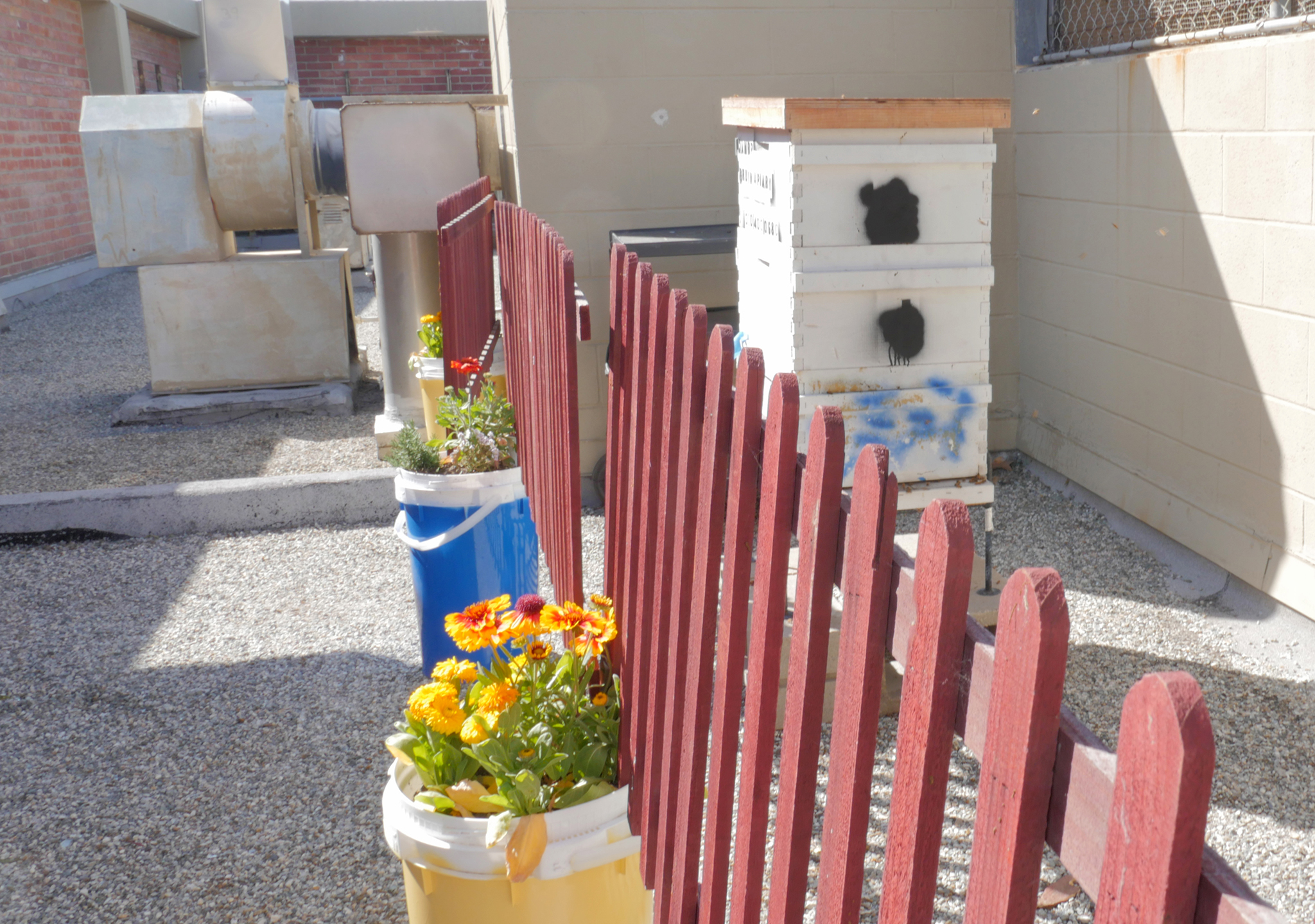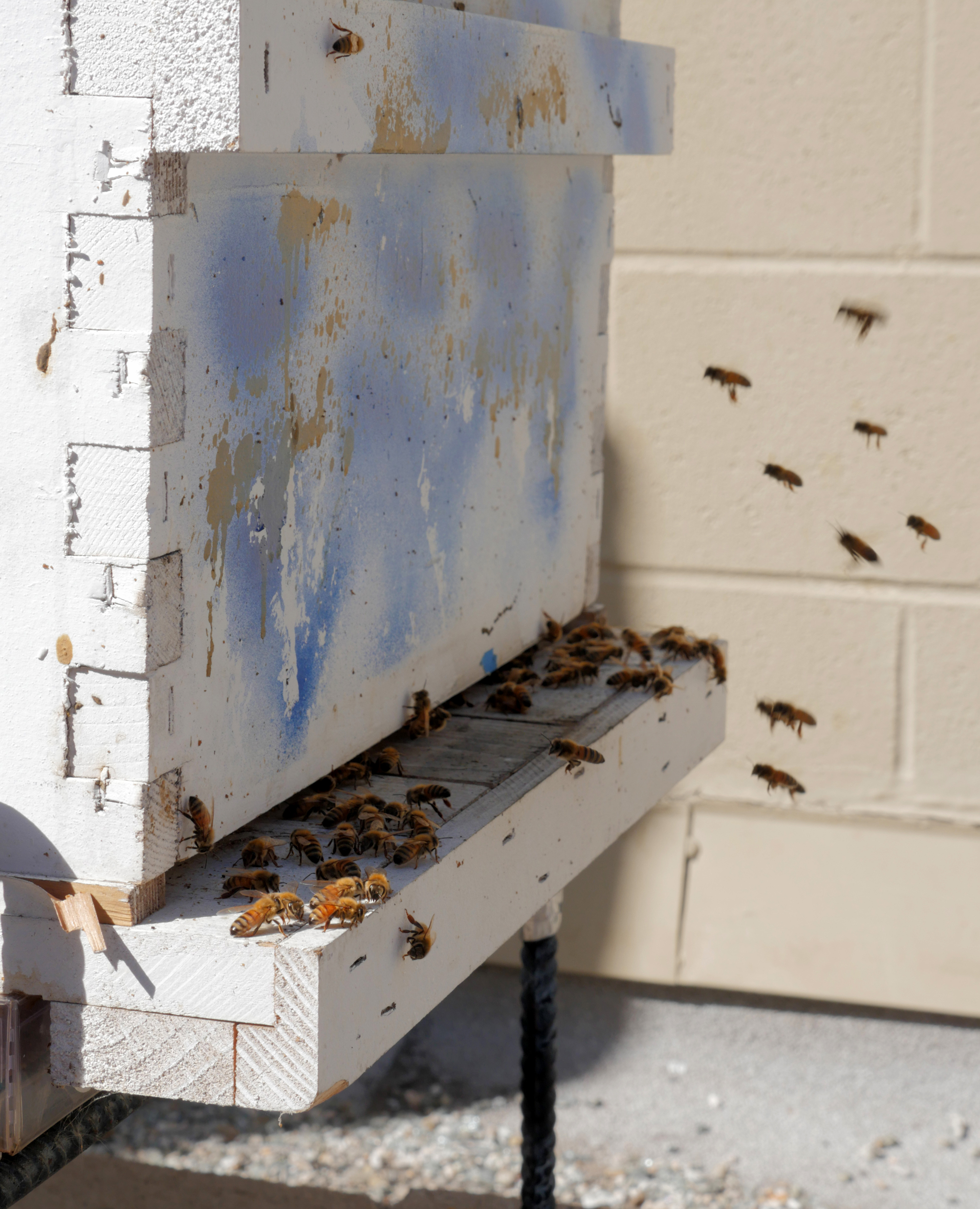
The impact of climate change
We are finding, coaching and training public media’s next generation. This #nprnextgenradio project is created in southern California, where five talented reporters are participating in a week-long state-of-the-art training program.
In this project we are highlighting the experiences of people whose lives are being affected by climate change.
Beekeeper Kian Nikzad is doing his part to make sure bees keep their vital role alive despite the adversities brought on from climate change. Ryanne Mena reports on what it means to have an intimate connection with a hive and how the rising heat is affecting them.
Illustration by Eejoon Choi
For the love of bees: A changing climate’s effect on nature’s pollinators
Bees may be small, but they make a big impact on the world around them. They provide us with flowers, fruit, honey, and more — but a changing climate is beginning to take a toll on hives.
Kian Nikzad wasn’t always obsessed with bees, and according to him, he still isn’t, but his passion for the little critters is undeniable.
Nikzad, 22, is the co-manager of the California Master Beekeepers Program and advisor to UCLA’s satellite organization, the Bruin Beekeepers. The recent computer science graduate is in tune with the bees he cares for and notices when the bees are not doing well.
“The increase in the change of variability of weather, and also the shift in the seasons has affected the bees, both native bees and honeybees pretty drastically,” Nikzad said.
The Urban Beekeeper: Saving bees one hive at a time

Kian Nikzad, 22, sports a beekeeper’s suit along the apiary entryway located on the rooftop of UCLA’s Life Sciences building on Monday, March 14, 2022 in Los Angeles, Calif. Photo by Ryanne Mena
Bees play an undeniably vital role in our world. They are responsible for pollinating approximately 35% of crops grown in the United States.
Bees are a keystone species, meaning that what affects them will affect all life, including humans. The unfortunate truth is that bee populations around the world are in decline.
The more bees continue to die off, the harder it will be to produce the agriculture and crops that we all depend on to survive.
Without bees, life and the world as we know it, would cease to exist.
Climate change has brought many problems to bees worldwide, especially in areas that are experiencing significant rises in temperature. In 2020, beekeepers in the U.S. lost over 40% of their managed honeybee colonies.
As a leader of UCLA’s beekeeper club, Nikzad is working hard to increase the number of beehives on campus from one, on a rooftop aviary, to six by the end of this spring.
From candles to bees
“I would say I’m not extremely obsessed with bees, but I do love them.”
Nikzad got involved with beekeeping two and a half years ago through his interest in sustainability. His idea was to create sustainable candles using glass jars made from sand around the campus, and wax from local bees.
That blossomed into bigger dreams, leading him to become a beekeeper.
Originally from the Bay Area, Nikzad with his bees now lives in Westwood, Calif., UCLA’s college neighborhood.
What’s the hot buzz?: Bees & climate change
About once a month, Nikzad visits the bees in their hive on the roof of the Life Sciences building — sometimes to check on them, and other times to address issues such as other pests getting in or the heat.

UCLA’s Life Sciences building rooftop habitat is home to a hive of honeybees managed and cared for by the Bruin Beekeepers. March 14, 2022. Photo by Ryanne Mena
Nikzad recognizes the important and vital role bees play in our ecosystem and has been affected by climate change as a beekeeper.
“You see, you can kind of tell when the bees are not doing well… when it’s hotter, they’re not as productive. You don’t see as many bees flying around the worker bees collecting pollen and nectar,” Nikzad said.
Bees are a lot more sensitive and communal than one may expect. If a hive becomes too hot, the majority of those bees will leave the hive to flutter their wings outside to help cool down their home.
Rising temperatures are a major issue caused by climate change, “for honeybees and native bees, specifically, because it is basically a form of habitat loss,” Nikzad said. it increases their probability of getting certain types of diseases in these new areas.”
Not all bees make honey
Nikzad’s work with bees on campus has led him to do a lot of research on them. He makes it very clear that there is a difference between honey bees and native bees.
What he learned surprised him — Honey bees are non-native to California. They aren’t even native to the United States; honey bees are from Europe.
They’re raised here for their delicious honey — and the resulting profits.
This is a big problem for native bees, Nikzad said.
“What honey bees often do is outcompete these native species,” he said. “They’re generalists, so they can pollinate almost anything, but native bees are usually specialized, so they specialize on certain flowers.”

A lively hive of honeybees call UCLA’s Life Sciences building rooftop apiary home. March 14, 2022. Photo by Ryanne Mena
Honey bees can take up all the pollen and nectar from native bees until “there’s nowhere left for them to go,” Nikzad said.
“If you want to protect and benefit honeybees and native bees, and you’re in an urban environment, if you can increase the pollination sources, that’s the most impactful thing you can do. Because it’s just there’s simply not enough food for them.”
Nikzad plans to help organize efforts to bring more beehives and bee education to his campus at UCLA and get more students involved.
Bees are sensitive creatures, just like all of us, and we all have a special place on this planet, he added. Native bees are susceptible to changes in their climate. This is especially concerning considering that “high densities of honey bee colonies increase competition between native pollinators for forage, putting even more pressure on the wild species that are already in decline,” according to an article in Scientific American.
Nikzad is hoping his group can work to make the earth a better space for the bees, one hive at a time: “No matter where you go, you can do your part to benefit the bees.”
